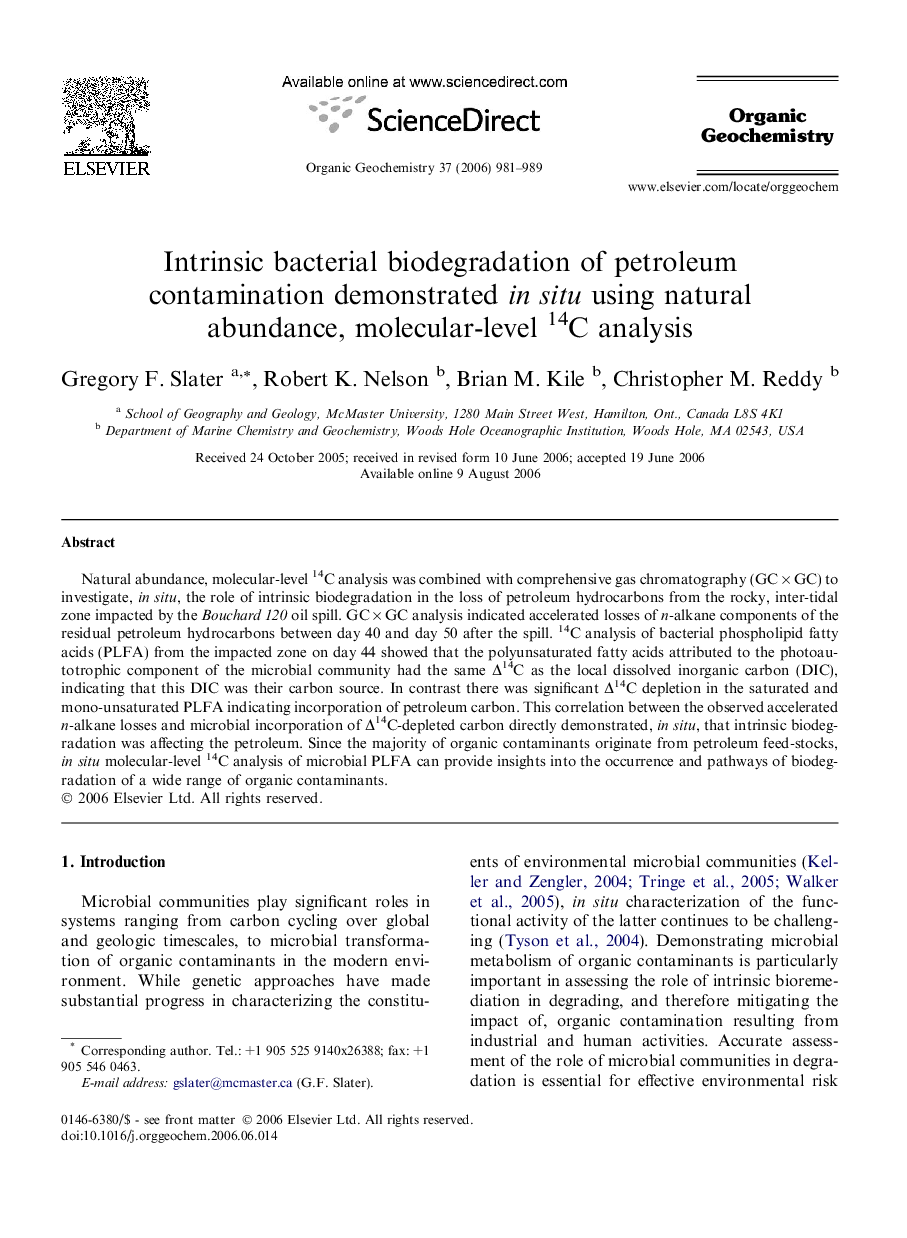| کد مقاله | کد نشریه | سال انتشار | مقاله انگلیسی | نسخه تمام متن |
|---|---|---|---|---|
| 5163036 | 1379767 | 2006 | 9 صفحه PDF | دانلود رایگان |
عنوان انگلیسی مقاله ISI
Intrinsic bacterial biodegradation of petroleum contamination demonstrated in situ using natural abundance, molecular-level 14C analysis
دانلود مقاله + سفارش ترجمه
دانلود مقاله ISI انگلیسی
رایگان برای ایرانیان
موضوعات مرتبط
مهندسی و علوم پایه
شیمی
شیمی آلی
پیش نمایش صفحه اول مقاله

چکیده انگلیسی
Natural abundance, molecular-level 14C analysis was combined with comprehensive gas chromatography (GCÂ ÃÂ GC) to investigate, in situ, the role of intrinsic biodegradation in the loss of petroleum hydrocarbons from the rocky, inter-tidal zone impacted by the Bouchard 120 oil spill. GCÂ ÃÂ GC analysis indicated accelerated losses of n-alkane components of the residual petroleum hydrocarbons between day 40 and day 50 after the spill. 14C analysis of bacterial phospholipid fatty acids (PLFA) from the impacted zone on day 44 showed that the polyunsaturated fatty acids attributed to the photoautotrophic component of the microbial community had the same Î14C as the local dissolved inorganic carbon (DIC), indicating that this DIC was their carbon source. In contrast there was significant Î14C depletion in the saturated and mono-unsaturated PLFA indicating incorporation of petroleum carbon. This correlation between the observed accelerated n-alkane losses and microbial incorporation of Î14C-depleted carbon directly demonstrated, in situ, that intrinsic biodegradation was affecting the petroleum. Since the majority of organic contaminants originate from petroleum feed-stocks, in situ molecular-level 14C analysis of microbial PLFA can provide insights into the occurrence and pathways of biodegradation of a wide range of organic contaminants.
ناشر
Database: Elsevier - ScienceDirect (ساینس دایرکت)
Journal: Organic Geochemistry - Volume 37, Issue 9, September 2006, Pages 981-989
Journal: Organic Geochemistry - Volume 37, Issue 9, September 2006, Pages 981-989
نویسندگان
Gregory F. Slater, Robert K. Nelson, Brian M. Kile, Christopher M. Reddy,